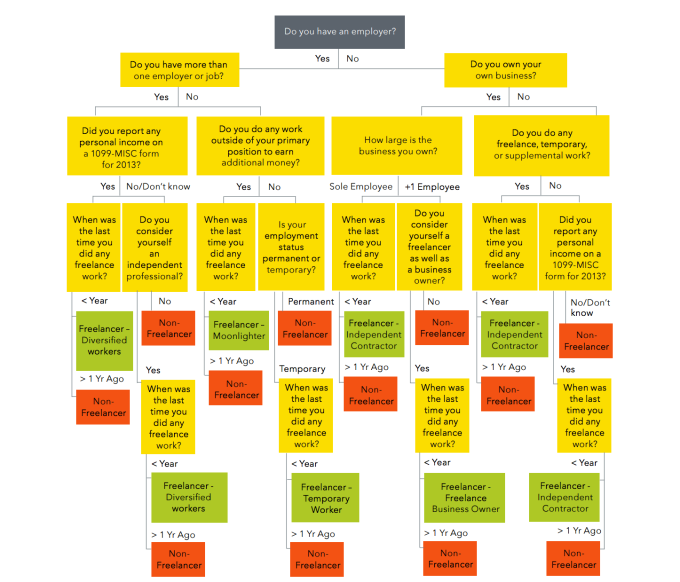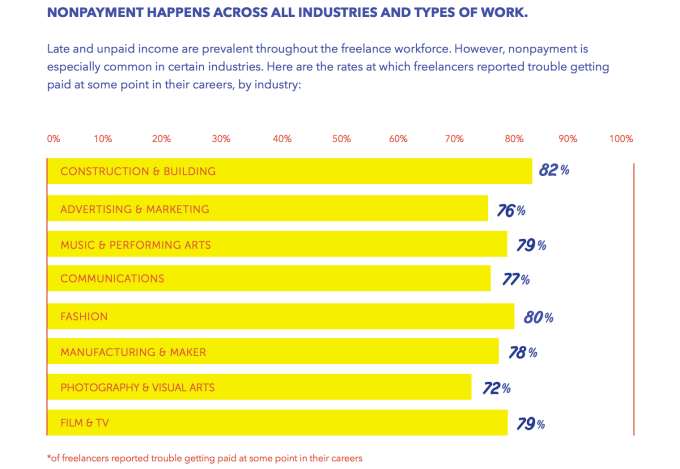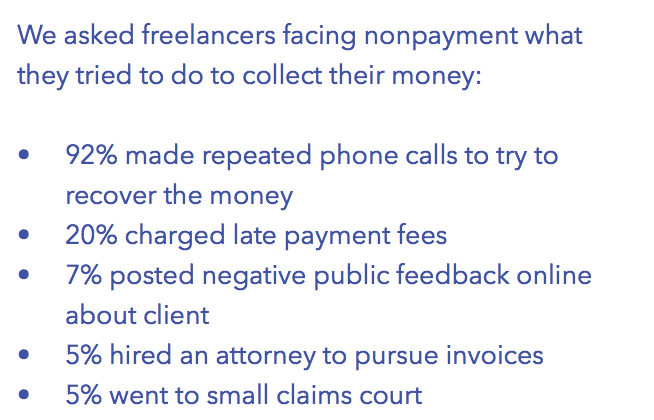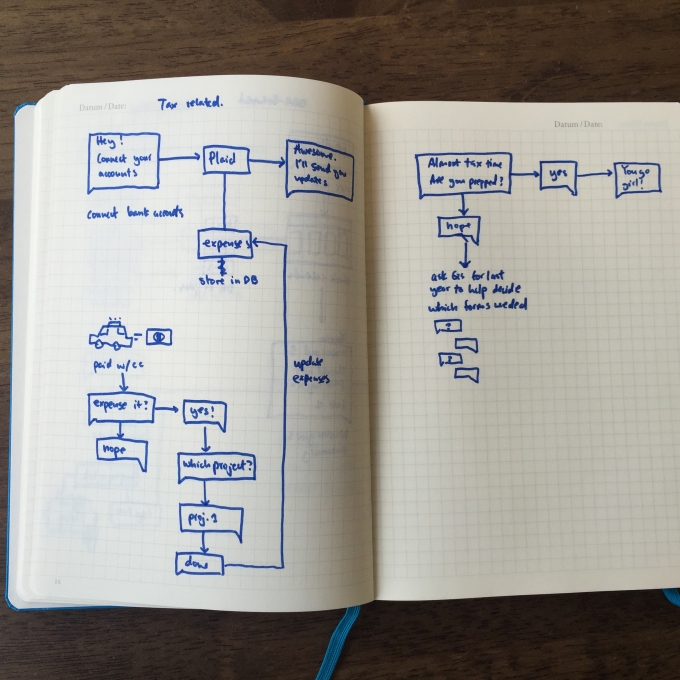“We are like hunters and gatherers” – Pam Liou
Last week we received a lot of good feedback, particularly on what group of users we should focus on first. It came down to freelancers. There are a lot of opportunities in this market because of various reasons:
- lack of financial management tools that support specific needs of freelancers (personal + business accounts and multiple companies/clients/projects)
- lack of standards on rates and best practices
- growing market (more recent graduates are doing independent work)
- I have understanding of everyday challenges of freelancers (freelance experience, and hiring freelancers/contract workers)
These opportunities also present challenges, namely the fragmentation of the market and lack of consistent documentation/census (not to mention international workers). Luckily, there is the Freelancers Union, which provides data on their members and have a lot of useful content in one centralized place.
53MM freelancers in the US
Based on a 2014 survey commissioned by FU and Elance-oDesk there were 53MM freelancers in the US.
“Gone are the days of the traditional 9-to-5. We’re entering a new era of work — project-based, independent, exciting, potentially risky, and rich with opportunities.”
“There are more avenues available to find work, to make contacts, to connect with others, etc. thanks to technology and its ability to network.”
- 40% independent contractors: don’t have employer, work on a project by project basis
- 27% moonlighters: have employer, moonlight on the side
- 18% diversified workers: combination of different work types (full time secretary + uber driving + freelance writing project)
- 10% temporary workers: single employer/client that is temporary (1-2 months)
- 5% freelance business owners: 1-5 employees, also considers freelancers
Here’s a great tree of the interview questions they used to categorize the workers.

FU also provides a report on their members. Here are some useful summaries from the post.
Key takeaways
- For Millennials, freelancing is the new normal.
- Concentration in the following fields
- artists & creatives (38%)
- services & sales (25%) — Lawyers, nannies, accountants, chefs, yoga instructors (kind of all over the place)
- writers & editors
- tech & web dev
- Cities: New York still has the majority of FU membership (over 60%), other cities are (from highest growth to lowest)
- LA, SF, Portland, Detroit, Baltimore, Milwaukee, Kansas City, Denver, Austin
#FreelanceIsntFree
Biggest challenges for freelancers: nonpayments and late payments
- “One in every two freelancers had trouble collecting payment in 2014”
- The average unpaid freelance worker loses almost $6000 annually – which accounts for 13% of their total income
It would be helpful to have a Glassdoor for freelancers with features such as report nonpaying companies and ratings, and help with written contracts.
There needs a way for freelancers to assess the risk of not getting paid by a company, and weigh the importance of experience/portfolio showcase piece vs. financial earning.


Frequent offenders:
- 43% of respondents had trouble collecting payment from microbusinesses (1-5 employees)
- 40% had trouble collecting payment from small businesses (5-49 employees)
- 36% had trouble collecting payment from medium (50-149 employees) and large (150+ employees) businesses
Most freelance engagements aren’t protected by clear, written contracts.
- Only about one-quarter of freelancers (28%) say they always use a contract
- 33% say they always put the terms of agreement in an email
- 42% always use a verbal agreement
- 21% of freelancers have worked with clients who have refused to sign a contract










